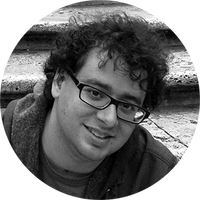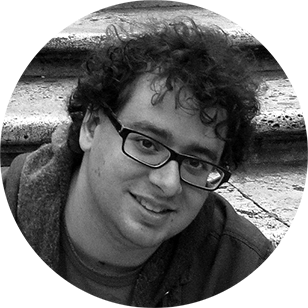Is the Fantastic Beasts franchise for adults or children?
Because The Crimes of Grindelwald certainly has few children in it

A free daily email with the biggest news stories of the day – and the best features from TheWeek.com
You are now subscribed
Your newsletter sign-up was successful
The strangest thing about Fantastic Beasts: The Crimes of Grindelwald — the latest film set in the Harry Potter universe, out Friday — is how adult it wants to be.
Just as the Potter books and films aged up with their young audience when they were first released, the Beasts pictures are darker, both visually and narratively — especially compared to the family fun of the first few Harry Potter movies. It's rare to see a kid-centric series leave childhood behind so fully. The two Beasts even break from the later, darker Potter movies by following an all-adult cast.
The first movie in the series, Fantastic Beasts and Where to Find Them, was originally billed as an adventure story about Newt Scamander (Eddie Redmayne) trying to locate various magical beasts in the United States. But audiences hardly had time to say Blast-Ended Skrewt before the first movie veered into stopping the world-threatening menace of the fascist wizard Grindelwald (Johnny Depp). Now, as the latest title clues you in, the series has pretty much abandoned finding fantastic beasts altogether in favor of finding, well, Nazis. What started as a light-hearted safari has become nothing less than the start of a wizardly world war.
The Week
Escape your echo chamber. Get the facts behind the news, plus analysis from multiple perspectives.

Sign up for The Week's Free Newsletters
From our morning news briefing to a weekly Good News Newsletter, get the best of The Week delivered directly to your inbox.
From our morning news briefing to a weekly Good News Newsletter, get the best of The Week delivered directly to your inbox.
A few kids do pop up in Grindelwald, but only when the movie makes a return trip to Hogwarts, the wizarding school where most of the original series is set. It ostensibly travels there to check in with a younger version of Harry's mysterious mentor Dumbledore (here played by Jude Law), but the film makes time for a few student-wizard reaction shots as well as flashbacks to the schooling of Scamander and his lost love Leta Lestrange (played as an adult by Zoe Kravitz), now engaged to Newt's straight-laced brother.
These romantic conflicts only serve to underline how uncomfortable Potter author and Beasts screenwriter J.K. Rowling is with adult relationships in this universe. The first film paired Newt with American auror Tina (Katherine Waterston), and Tina's sister Queenie (Alison Sudol) with Newt's unlikely, regular-human sidekick Jacob (Dan Fogler). Grindelwald spends a lot of time methodically undoing any progress those relationships made by the end of its predecessor, separating characters so it can engineer eventual reunions (and sometimes additional separations). It's not unlike the Marvel Cinematic Universe's weird aversion to romance, only without that series' baseline charm.
There's also unresolved tension between Grindelwald and Dumbledore. Rowling has said — outside of her actual texts or films — that the two wizards once shared some kind of romantic relationship, albeit possibly one-sided (Dumbledore's homosexuality being canon written in invisible ink). Yet any romantic feelings Dumbledore has in the movie are kept to lightly innuendo-laden glances and barely-there subtext. Why, exactly? To protect the innocence of young children who are watching a murkily shot PG-13 movie about grownups killing each other?
The movie doesn't need a gay romance to work, but attention to that kind of emotional nuance would immediately set the film apart from its predecessors. It's possible that Rowling and director David Yates are saving that material for a later film, fitting the Fantastic Beasts strategy of endless teasing, but it's hard to say.
A free daily email with the biggest news stories of the day – and the best features from TheWeek.com
Dumbledore's continued closeting may have less to do with overcautious studio executives (though there is that) than the fact that all of Rowling's relationships have the anti-chemistry of fumbling childhood sweethearts in adult bodies, as if a bunch of younger Potter characters took a strong dose of polyjuice potion. Redmayne's Newt, the supposed heart of this new series, seems designed to read as somewhere on the spectrum, but the actor's mannered overplaying is both showy and reductive. Newt — and for that matter, most of the characters — are vaguely childlike without a sense of wonder. If the heroes are going to be this repressed and recessive, this devoid of an adult sensibility, why not just make them kids in the first place?
The Crimes of Grindelwald appears to be, first and foremost, made "for the fans." But the series' age agnosticism seems less about providing all-ages entertainment than a refusal to think of these fans as actual people.
Jesse Hassenger's film and culture criticism has appeared in The Onion's A.V. Club, Brooklyn Magazine, and Men's Journal online, among others. He lives in Brooklyn, where he also writes fiction, edits textbooks, and helps run SportsAlcohol.com, a pop culture blog and podcast.
